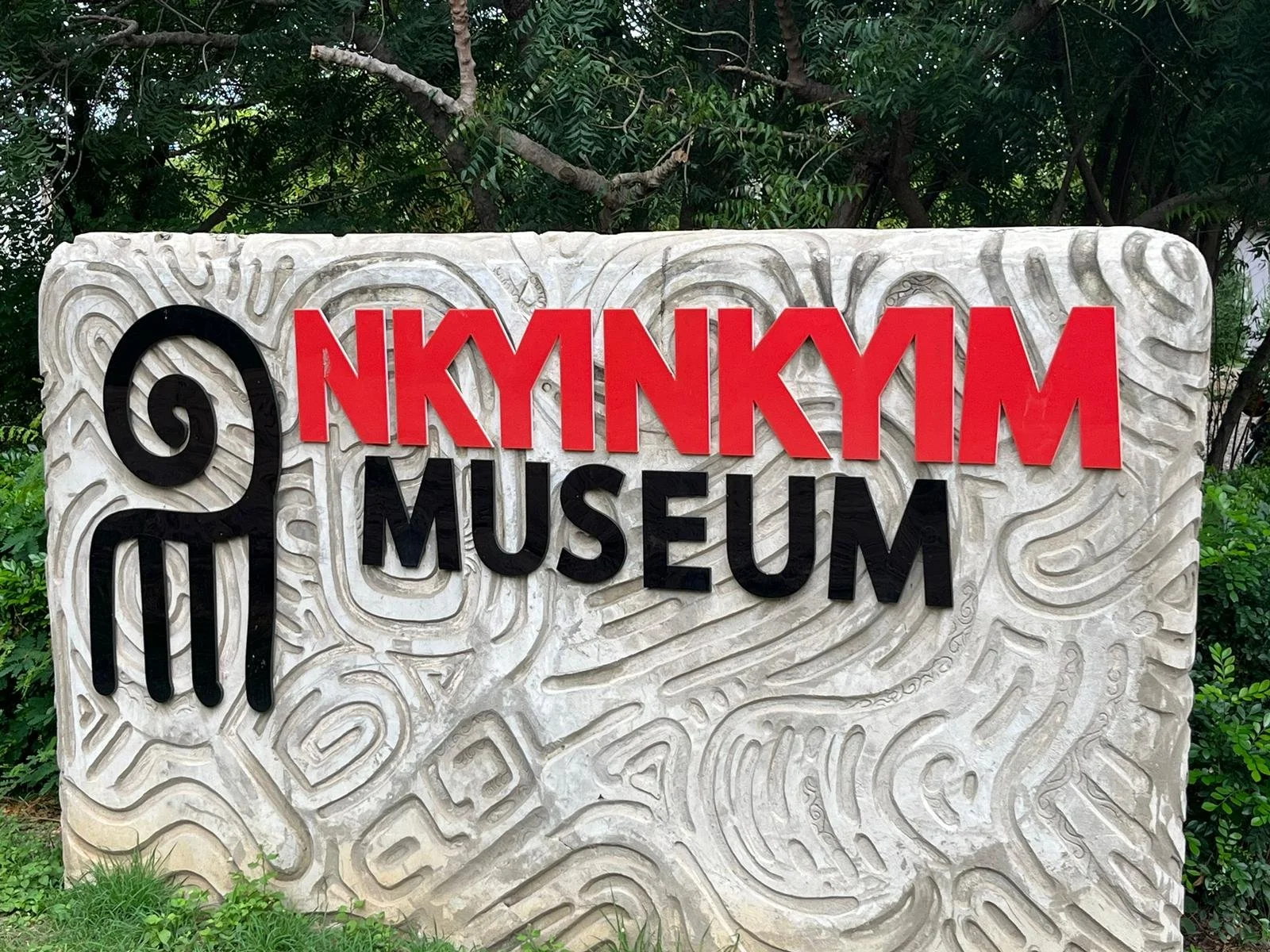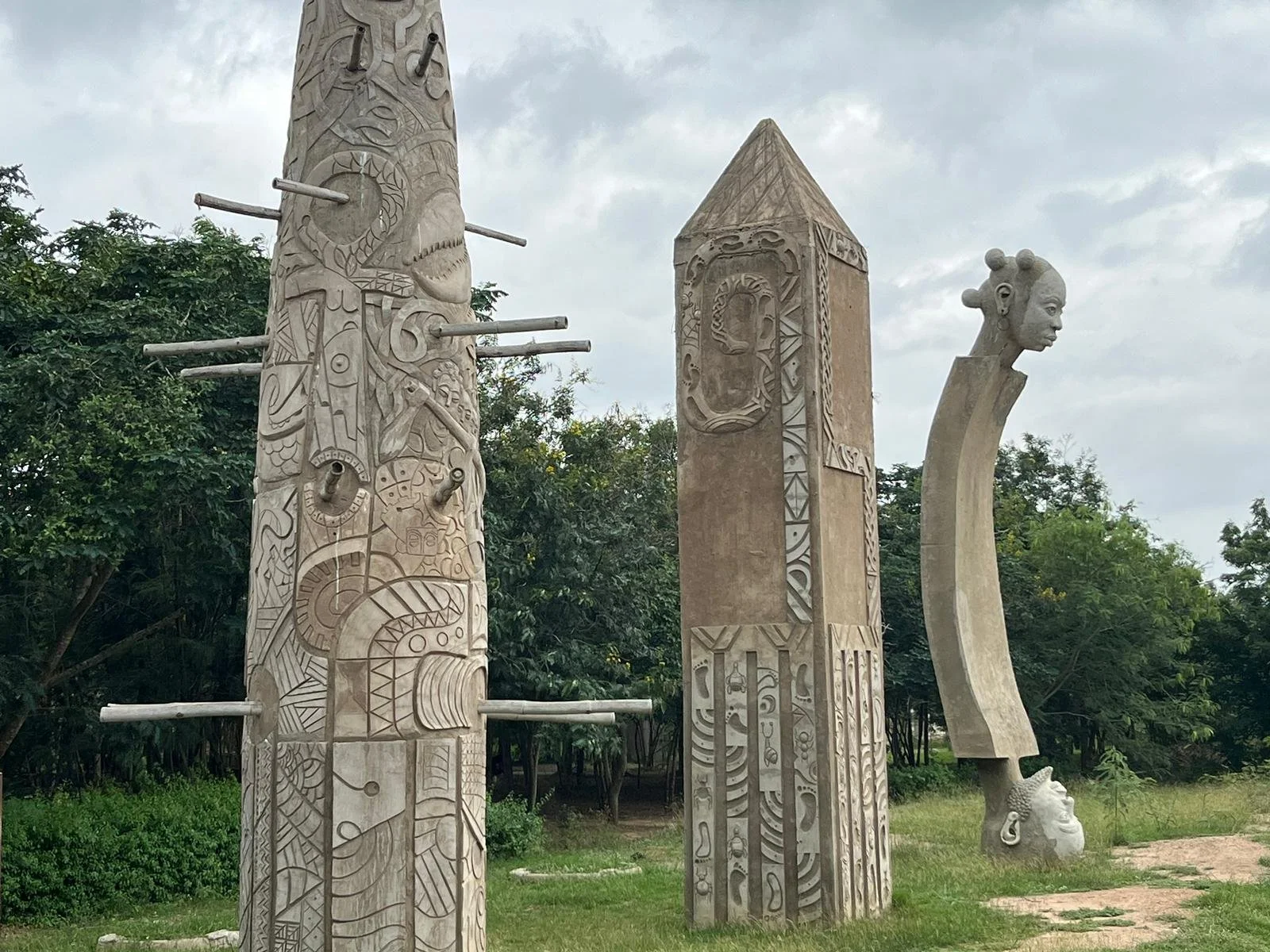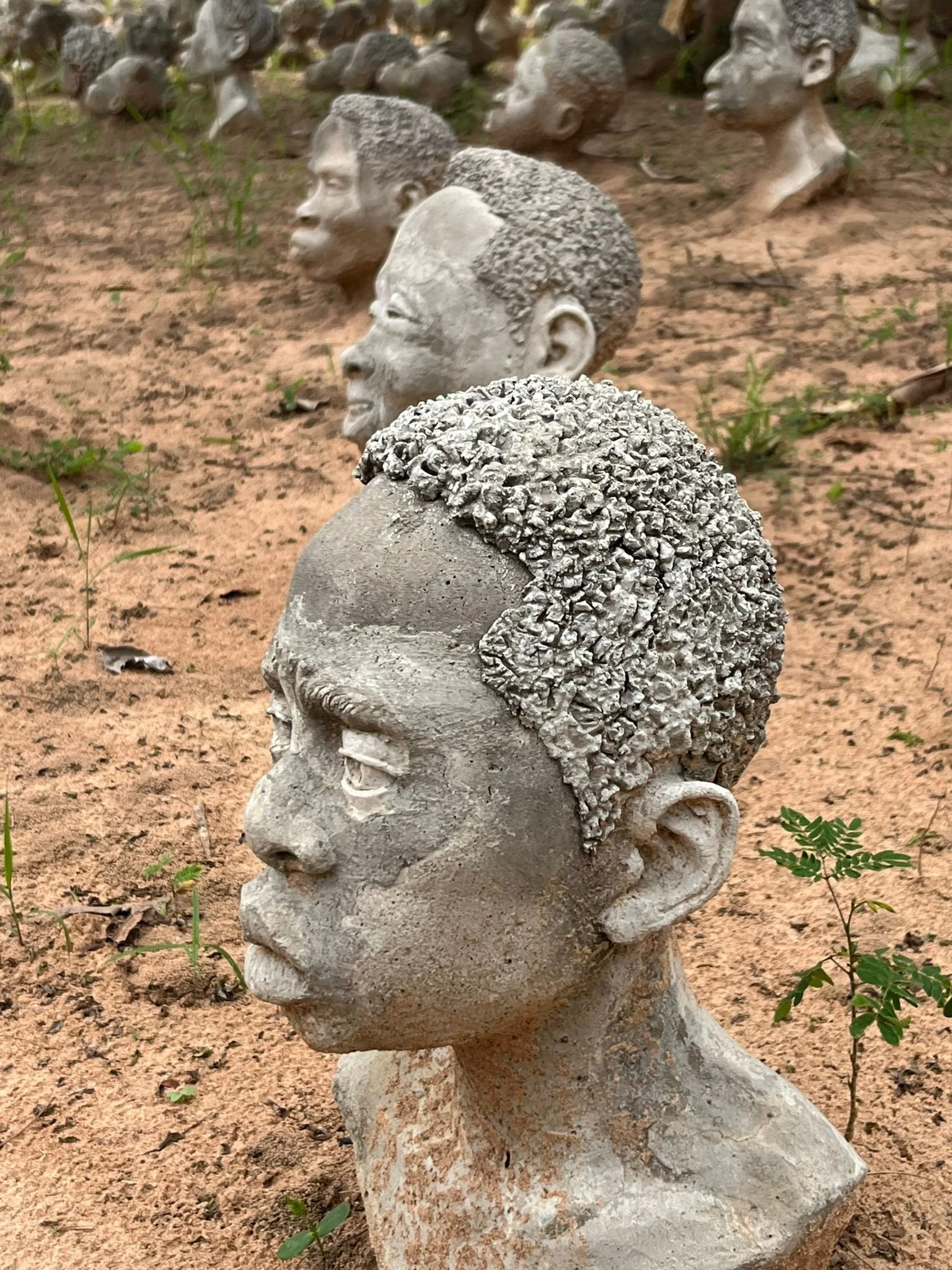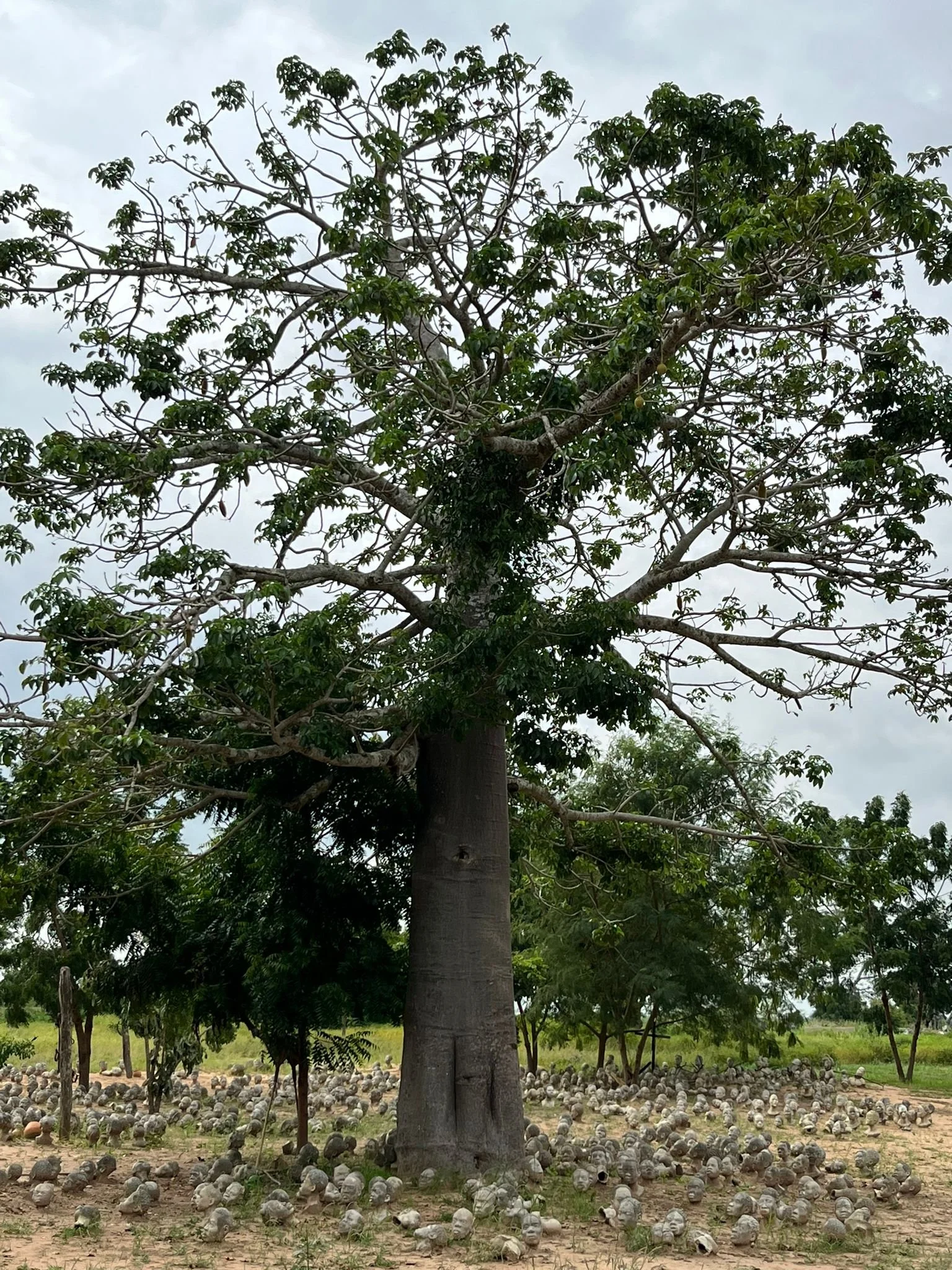The Nkyinkyim Museum is the inspiration of Ghanaian artist, Kwame Akoto-Bamfo. His genius and works also extend across the Atlantic to the Equal justice Institute Legacy Museum in Montgomery, Alabama.
Through sculpture, murals, performance, and oral history the Nkyinkyim Museum documents the twists and turns of a nation and of peoples that script details, nuance, and honesty to the narrative of Ghana and Africa. The museum stands on the shoulders of and builds on the traditions of Pan-African leaders that amplify an African voice to counter the prevalent American and European voices. The narrative authored by the European and American perspective about Africa and countries like Ghana is incomplete and self-serving, emphasizing only the parochial interests of the western world - not the interests of Africa and countries like Ghana. In authoring a more complete and holistic narrative, the story told at the museum celebrates the various civilizations of Ghana and Africa and their contributions to world culture. It also charts the twists and turns of Africa - twists and turns that stole generations from these shores to a life of chattel enslavement, and then shackled much of the continent to subservient European colonization. The legacy of those crimes linger. That legacy is the past that speaks to the present, and demands restorative justice and reconciliation - a further mission of the museum. The art and oral history of the grounds of the museum provide space for healing, restoration, and justice.
In Africa, the head of the body keeps the soul. At the museum, this spirituality expresses itself at an installation where sculptures of countless African heads fill a grove of Baobab trees. Some are in chains, some in the water (representing the Middle Passage), some appear reverent. It is emotional and haunting, but there are slivers of hope and beauty in honoring the many and the voiceless. It tells the story of the twists and turns of a nation and of a continent. It echoes the voice of Ghana and of Africa.
My descendants come from Europe, and I was socialized into the unaware and incomplete European and American world view, which tends to predominate in the world at large. Yet, a visit to the Nkyinkyim Museum reminds visitors that that perspective is only one of many, and each perspective contributes to the mosaic which collectively reveals a greater truth about being and essence and connection that broadens that very narrow and parochial view to which the masses subscribe. It becomes the duty of the western world to amplify those African voices and learn from those voices. To quote the esteemed WTIG faculty member Professor Pash Obeng, "I came, I saw, I learned".
The grove of Baobab trees that guards the souls of sculpted heads screams another Akan proverb. "Knowledge is like a Baobab tree". One person alone cannot wrap their hands around the trunk of the Baobab. It takes many to link hands to understand and absorb a larger collective wisdom. Coming together to link arms around the trunk remains the mission of the Witness Tree Institute. We will be wise to that proverb as the journey of Cohort 2 of The Witness Tree Institute of Ghana 2023 begins. The cohort has chosen the Adinkra symbol Sankofa (learning from the past to move forward) as the emblem for the group.
We will listen to African voices and learn from each other in order to script a new narrative. We will use resiliency and versatility to survive the twists and turns of the journey which will bring us to Cape Coast, Elmina, Assin Manso, Kumasi, Tafo, Akuapem, and greater Accra. We will nurture a "gracious space" where spirit and strangers enter and learn. We will smile, listen, laugh, cry, hold hands, and share. And most importantly, we will bear witness and be transformed by each other and our community, and return with lessons to enlighten our schools and families. The Witness Tree casts that enduring shadow. The twists and turns of the journey of Cohort 2, Sankofa, commences.
By David Duane, Witness Tree Institute Program Leader and Chair of the Science Department, The Fenn School, Concord, Massachusetts





